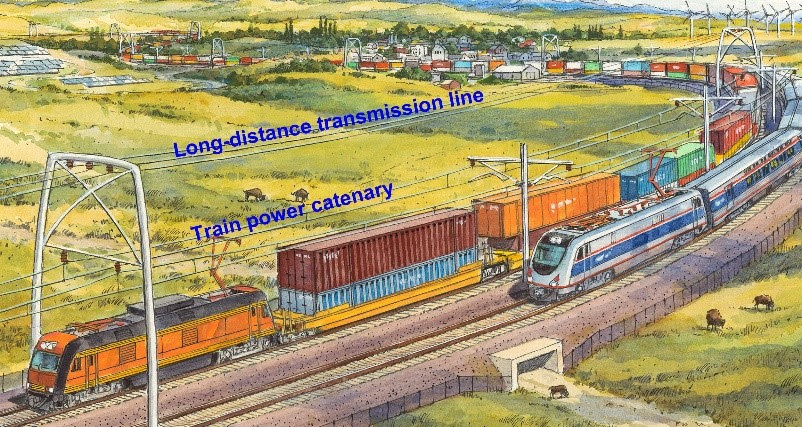CoViD-19 is a confluence of crises that further exacerbates inequities and exposes societal and economic vulnerabilities. Our latest RailBite, Solutionary Rail in a Time of Pandemic explores how this moment of crisis is also an opportunity to address those vulnerabilities, as well as one of the underlying causes of this and future pandemics, i.e. climate change, by undertaking a transformational national infrastructure project. Solutionary Rail offers a pathway to tackle some of the most difficult decarbonization challenges while improving public health, delivering environmental justice, and rebuilding local & national economic vitality.
Solutionary Rail continues to champion bold, synergistic solutions for these most difficult, interwoven crises. The time for Solutionary Rail is now. Join with us by becoming an ambassador for this vision.
- Please share this RailBite with your Congressional representatives.
- Use our SR Ambassador Toolkit to write a letter to the editor, present to your local community.
- Pass a resolution in your town or organization like the City of La Crosse, Wisconsin recently did.
The recent House Transportation Committee’s Moving Forward Act (MFA) and the House Climate Action Plan (HCAP) address some important challenges, but leave many of the most difficult problems unresolved.  The Climate Action Plan champions a National Supergrid for electric transmission to stabilize the variability of renewable energy. It borrows from Solutionary Rail the idea of co-locating that transmission on railroad rights of way. But it has no actual plan for doing so – nor does it leverage the synergies between accessing those rights of way and the potential to re-center rail in our transportation system.
The Climate Action Plan champions a National Supergrid for electric transmission to stabilize the variability of renewable energy. It borrows from Solutionary Rail the idea of co-locating that transmission on railroad rights of way. But it has no actual plan for doing so – nor does it leverage the synergies between accessing those rights of way and the potential to re-center rail in our transportation system.
The Action Plan is especially short on “action” or “plan” in regards to long-haul freight (despite our best efforts to guide the authors to a solution). Instead of incorporating advice of Solutionary Rail, HCAP merely acknowledges that it has no solution to the problem of freight, citing a study that anticipates that even in 2050, 50% of long haul trucks will be powered by diesel. Transmission is essential to solving the climate crisis, but we cannot succeed in our decarbonization goals without getting long haul freight off of roads and onto tracks.
The Moving Forward Act also makes important efforts but fails to lead with a vision. It nibbles at the edges with a weak attempt to confront longer and longer unit trains by limiting the time they are allowed to block roads to ten minutes. Laudably, the MFA calls for minimum two-person train crews. It commits to studying the problem of Wall Street capture of railroad corporations via so-called “Precision Scheduled Railroading” (PSR), and it invests in cleaner ports and railyards. But the Moving Forward Act completely fails to move us forward toward a rational, efficient, accessible and decarbonized freight transport system.
The CoViD-19 pandemic is in part a result of catastrophic climate change, and there will be more unless we tackle the causes and build societal resilience. The pandemic is able to devastate our society and economy because we have spent the last four decades dismantling public health systems and abandoning family farms and domestic manufacturing. Instead of more Wall Street bailouts, it is time for bold solutions that turn the tide on climate and economic trends.
Leave a Reply